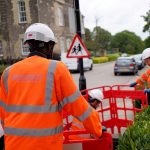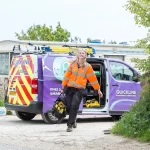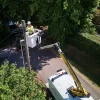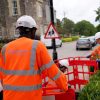Study Claims UK Gov’s Digital Inclusion Strategy Missed Targets

A Rouge Media study has found that the UK Government may have failed the targets set in their 2014 Digital Inclusion Strategy, which among other things aimed to reduce the number of people offline by 25% every 2 years (and by the end of 2020, everyone who can be digitally capable, will be). But only a 16% fall was achieved.
A new analysis of the “latest data” shows that, between 2017 and 2019, this target was missed in every UK region apart from in the South West (England), where a 28% reduction occurred (i.e. the number of internet non-users dropped from 477,00 people in 2017 to an estimated 342,000 in 2019).
Meanwhile the UK as a whole achieved a 16% reduction in the number of residents over the age of 16 living offline – a long way off the 25% target. Overall, the research claims that there are still nearly 5 million people who have never used the internet or haven’t accessed it in the past three months.
Advertisement

Despite this it’s good to see that the direction of travel remains positive, even if concerns remain over poor digital infrastructure affecting businesses and families in parts of the UK. On the other hand, it’s noted above that London has seen the slowest progress in closing its digital divide, with the number of internet non-users only falling by 4% in the last two-year period.
However, London has the lowest percentage of internet non-users in the UK based on its population size (in 2019, 6.8% of its residents were offline). One of the other factors influencing London’s smaller digital divide is that its population is comparatively young; the average age in London is 35.6, compared to 40.3 in the UK overall. In Inner London, almost half the population is in their early twenties to early forties (46.7%), compared to 30.9% in the rest of England.
Nevertheless, as the portion of the population who were born before the internet becomes smaller, and the first generation of “digital natives” reach adulthood (i.e. those trained with the necessary skills by default), the digital divide will close further and at an accelerated rate. But some enduring social and economic issues look set to remain, preventing people from using or benefiting from the internet fully.
Advertisement
Issues of affordability, disability, old age, a lack of digital skills and even a lack of desire for going online continue to cause problems. But as we always say, not everybody wants to use the internet and nobody should force it on to those who don’t want or need it, but equally support should always exist for those who wish to give it a try.
The fact that fixed line superfast broadband ISP or mobile broadband networks aren’t yet able to reach every single corner of the UK is another issue, albeit no longer the main one. The 10Mbps broadband USO was supposed to solve this but tens of thousands fall outside of the cost limits for that.
Andy Woods, Director of Rouge Media, said:
“It’s been really interesting to study the progress being made to meet the Government’s ambitious target of getting everyone who’s digital capable online by the end of 2020. It’s clear that while positive work has been done, an enduring digital divide remains.
Internet costs have been rising steadily over recent years, while speed and reliability are still major issues affecting many regions. Until the UK’s digital infrastructure is fit for purpose nationwide, we won’t be able to unlock the full social and economic potential and make greater strides in addressing the inequalities that remain.”
We also have a few issues to highlight with the research. Firstly, Andy claims that “internet costs have been rising steadily over recent years,” although it’s worth remembering that for most people the available service speeds have also been increasing and the new age of gigabit-capable lines will help.
In many cases this means that consumers will be getting more value for their money as speeds tend to rise faster than prices do. Broadband is also generally still one of the cheapest utility services. Likewise, for mobile networks, it’s now possible to get unlimited data for the same price as a much more restrictive capped usage allowance before, so the overall picture is more complex than made out above.
Advertisement
Finally, the data used in this piece was also released by the Office for National Statistics in May 2019, which they say above is the “latest” data, but this is incorrect as the ONS published a newer dataset in August 2020 (here). So while Rogue Media’s study claims that nearly 5 million people are non-internet users, the latest data actually puts this at 5% or 2.7 million.
Mark is a professional technology writer, IT consultant and computer engineer from Dorset (England), he also founded ISPreview in 1999 and enjoys analysing the latest telecoms and broadband developments. Find me on X (Twitter), Mastodon, Facebook, BlueSky, Threads.net and Linkedin.
« Australia Sets New Distance Record for 1Gbps Speed via 5G mmW UPDATE






















































Comments are closed